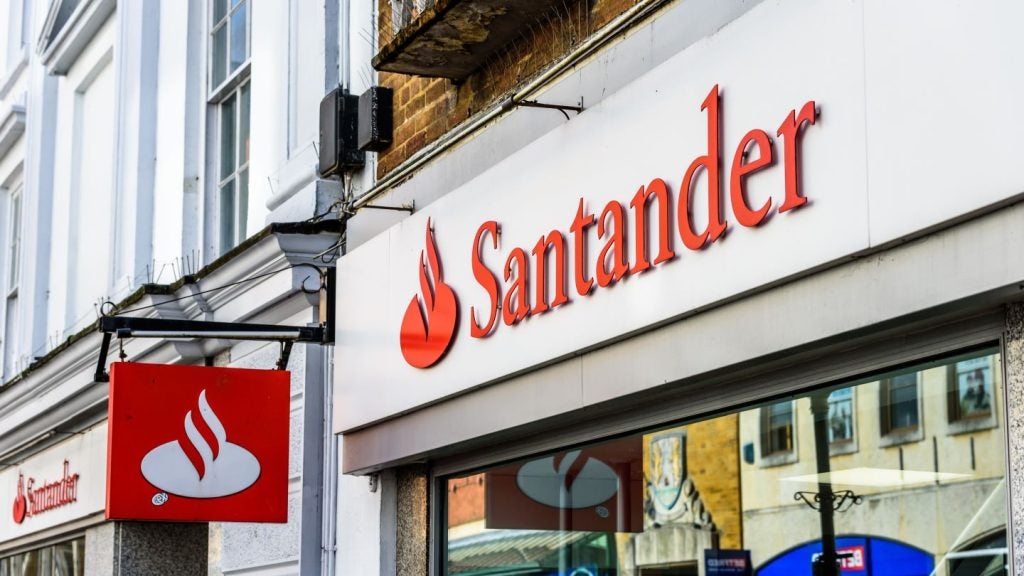Ambiguous terms means being prepared to accept the
commercial sense of the law, says Roger Heward.
 The case of Rainy Sky SA v Kookmin Bank, a
The case of Rainy Sky SA v Kookmin Bank, a
dispute involving the Korean Bank and concerning a shipbuilding
contract signed by buyers Rainy Sky SA and Jinse Shipbuilding of
Korea, the ship’s builders, has been brought to its conclusion in
the English courts.
The Supreme Court has delivered a
unanimous judgment which restores the decision of the judge at
first instance and overturns the majority decision of the Court of
Appeal.
The decision of the Court of
Appeal, in particular, attracted attention because it was
interpreted in some quarters as casting doubt upon the general
reliability of refund guarantees issued by Korean banks.
How well do you really know your competitors?
Access the most comprehensive Company Profiles on the market, powered by GlobalData. Save hours of research. Gain competitive edge.

Thank you!
Your download email will arrive shortly
Not ready to buy yet? Download a free sample
We are confident about the unique quality of our Company Profiles. However, we want you to make the most beneficial decision for your business, so we offer a free sample that you can download by submitting the below form
By GlobalDataBackground
The underlying difficulty was that
the buyer and the refund guarantor had agreed upon ambiguous
wording in the text of the refund guarantee.
Paragraph 2 of the guarantee
stated: “Pursuant to the terms of the Contract, you are entitled
upon your rejection of the Vessel…, your termination, cancellation
or rescission of the Contract or upon Total Loss of the Vessel, to
repayment of the pre-delivery instalments…”
Paragraph 3 stated: “In
circumstances of your agreement to make the pre-delivery
instalments under the Contract … we undertake to pay to you… all
such sums due to you under the Contract…”
The problem related to the
undertaking to pay “all such sums” (in paragraph 3). Did those
words refer back to the specific repayment rights set out in
paragraph 2 (all of which arose only upon termination of the
building contract), or were those words a reference to “the
pre-delivery instalments”
mentioned in paragraph 3?
If paragraph 3 was entirely
self-contained, then the refund guarantor had undertaken a general
liability to refund pre-delivery instalments whenever same became
due from the builder, even in circumstances where the building
contract had not been terminated.
The building
contract
The building contract was in
customary terms and provided that, in certain circumstances, the
buyers would be entitled to a refund of instalments.
These circumstances included
termination, cancellation or rescission of the contract. If the
hull became a total loss during construction, the buyers were also
entitled to a refund. If the builder became subject to any form of
insolvency procedure, the buyer became entitled to demand immediate
repayment of instalments paid to date.
In such circumstances, however, the
buyer did not become entitled to cancel the contract. The contract
provided that
the builder would, in such circumstances, have the option either to
continue with construction of the hull, or to cancel the
contract.
If the builder chose to complete
the hull then, at delivery, the builder was entitled to be paid
either the full contract price (if the builder had previously
refunded instalments to the buyer), or the outstanding balance (if
instalments had not been refunded following the insolvency
event).
Rehab
In January 2009, the builder
applied to the Korean court for protection from its creditors, with
the intention of conducting a formal debt work-out procedure and
continuing in business.
The procedure is known as
‘corporate rehabilitation’ (rehab). Rehab is not a liquidation. The
court appoints a trustee whose job it is to ascertain whether the
debtor company can be restructured and continue in business in
accordance with the terms of a rehab plan.
The procedure is, however, similar
to a liquidation in certain respects, because unsecured creditors
are liable to recover only a proportion of their debts.
The dispute
Once the rehab order was made, the
buyer made demand upon the builder for refund of the instalments
paid to date.
When the builder failed to pay, the
buyer made demand upon the refund guarantor. Kookmin Bank declined
to pay and legal proceedings ensued in London. At the time demand
was made on the refund guarantor, the building contract was still
in existence and had not been terminated by the builder.
The most persuasive argument
available to the refund guarantor was that paragraph 3 of the
refund guarantee was not self-contained, but that it obviously
referred back to paragraph 2.
In paragraph 2, there was a list of
certain circumstances in which the buyer became entitled to a
refund of sums in respect of instalments. The refund guarantor
argued that the reference in paragraph 3 to ‘such sums’ was
obviously a reference to the sums described in paragraph 2,
otherwise paragraph 2 was redundant and might as well have been
deleted entirely from the text of the refund guarantee.
The English courts are usually
reluctant to conclude that the parties have included redundant text
in a contract. The Court of Appeal (by a majority) had accepted the
refund guarantor’s argument on this point and, accordingly, held in
favour of the refund guarantor.
In the Supreme Court, the buyer
maintained the argument it had presented in the lower courts,
namely that it was contrary to common sense to interpret the refund
guarantee in such a way that the guarantor had no liability to
refund instalments following the making of the rehab order in
respect of the builder.
The Supreme Court regarded that
argument as decisive, stating: “In the absence of paragraph [2]
there would be no doubt that the reference to ‘such sums’ was a
reference to the ‘pre-delivery instalments’ at the beginning of
paragraph [3].
“That makes perfect sense because
one would naturally expect the parties to agree [and the Buyers’
financiers to insist] that, in the event, for example, of the
insolvency of the Builders, the Buyers should have security for the
repayment of the pre-
delivery instalments which they had paid.”
Shipyard
insolvency
The Kookmin Bank case highlights
some of the risks inherent in shipbuilding contracts.
For lenders, pre-delivery finance
is widely regarded as more risky than ship mortgage finance. In the
context of pre-delivery finance, a primary
concern of the lender is to have (usually by way of an assignment
from the buyer) the benefit of a reliable refund guarantee.
However, refund guarantees do not
impose liability upon the guarantor at all times and in all
circumstances. Building contracts invariably give the buyer a right
to be repaid instalments in certain circumstances.
These circumstances are usually
those in which the building contract is at an end – for example
through rescission, or as a result of delay on the part of the
builder, or because the hull has become a total loss.
A guarantor usually has no
liability unless and until the building contract is permanently at
an end.
But insolvency on the part of the
builder is usually not
an event which automatically terminates a building contract and
there are good reasons why that is the case. There are different
kinds of insolvency procedures, ranging from liquidation, to
administration, and to corporate restructurings conducted under
court supervision.
When a builder becomes insolvent,
the insolvency officer may regard the building contract as a
valuable asset of the insolvent company and may wish to complete
the ship and deliver it to the buyer. In such circumstances, there
is no need for insolvency to have the effect of terminating the
building contract.
The buyer’s position is not
adversely affected, because the buyer remains entitled to rely upon
its right to terminate the building contract if the ship is not
properly completed and delivered by the cancelling date.
If the insolvency officer completes
the ship successfully and in time, the buyer will have lost nothing
as a result of the insolvency. If the ship is not completed, the
buyer may terminate the contract and recover instalments from the
refund guarantor.
Conclusions
- The outcome of the dispute
depended upon its precise facts and upon the Supreme Court’s
interpretation of the ambiguous drafting of the refund
guarantee. - In order to resolve an
undoubted ambiguity in the drafting of the refund guarantee, the
Supreme Court was influenced by its view of what was a commercially
sensible outcome. - There is no substitute for
careful and accurate drafting of legal documents; if the documents
are ambiguous, the parties must submit to the outcome of legal
proceedings. - The judgment created no new
law; well-established principles of contractual interpretation were
applied, although the Supreme Court emphasised that the courts are
entitled to apply a purposive interpretation in circumstances where
the contract is ambiguous. - Kookmin Bank has no adverse
significance in relation either to the Korean shipbuilding market,
or to the reliability of Korean refund guarantors.
Roger Heward is a partner in law
firm Norton Rose’s dispute resolution team







